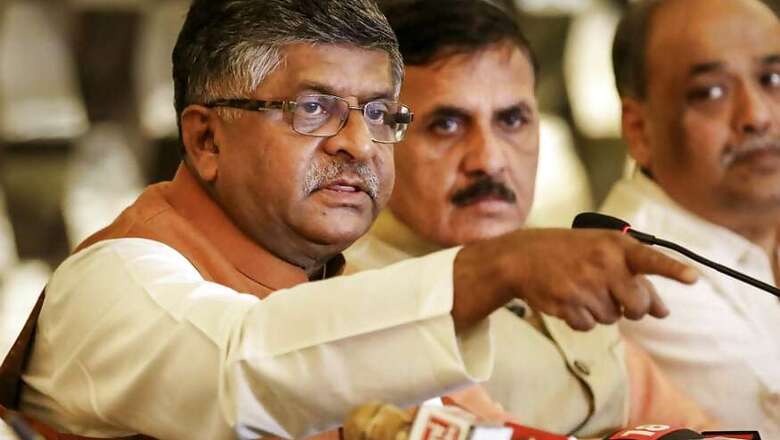
views
New Delhi: Personal data of 5.62 lakh Indian Facebook users may have been accessed by the controversial UK political consultancy group Cambridge Analytica, union minister for electronic and information technology Ravi Shankar Prasad told the Parliament on Wednesday.
The minister told members of the House that following media reports about the unauthorised use of personal data and breaches of private information, the Centre had approached both Facebook and Cambridge Analytica seeking clarifications.
The UK political consultancy firm had responded on April 3, 2018 saying that “they do not have any Facebook data of Indian citizens.” However, the social media giant on April 5, 2019 informed the government that “data of estimated 5,62,455 Indians may have been accessed by Cambridge Analytica through installations of the App developed GSR and installed by Indians,” the minister said.
As the statement laid on the House, both companies have now been separately asked for “additional details.”
Cambridge Analytica came to light with a major data scandal involving Facebook in early 2018. It was found to be harvesting personal data of millions of peoples from their Facebook profiles without their consent and using it for targeted political advertising.
In India, the group had been employed by the Congress party to carry out a voter analysis in the 2010 assembly elections in Bihar.
The development on the compromised data in the Cambridge Analytica-Facebook data scandal comes after the recent WhatsApp snooping row in which the privacy of 121 Indian users was compromised. A third-party Israeli spyware called Pegasus had been used to snooping on the individuals.
With the winter session of Parliament in progress, lawmakers are set to discuss the Personal Data Protection Bill, 2018 that seeks to regulate the processing of personal data of individuals by government and private entities.
While the Bill allows processing only if the individual consents to it, or in a situation of medical emergency, or by the government to provide welfare benefits, it is unclear who it actually intends to protect.
Seen within the purview of the draft Information Technology [Intermediaries Guidelines (Amendment) Rules] 2018 that require platforms like Facebook, Twitter, YouTube to prohibit users from hosting obscene content, the Bill is a step forward to protect ‘filtered’ data from any breach or wrong use.
On one hand, the draft Bill gives data principals several rights to their data, on the condition that certain personal data be solely stored within the territory of the country.
It, however, holds data fiduciaries, incorporated in India or overseas accountable by building transparency.




















Comments
0 comment